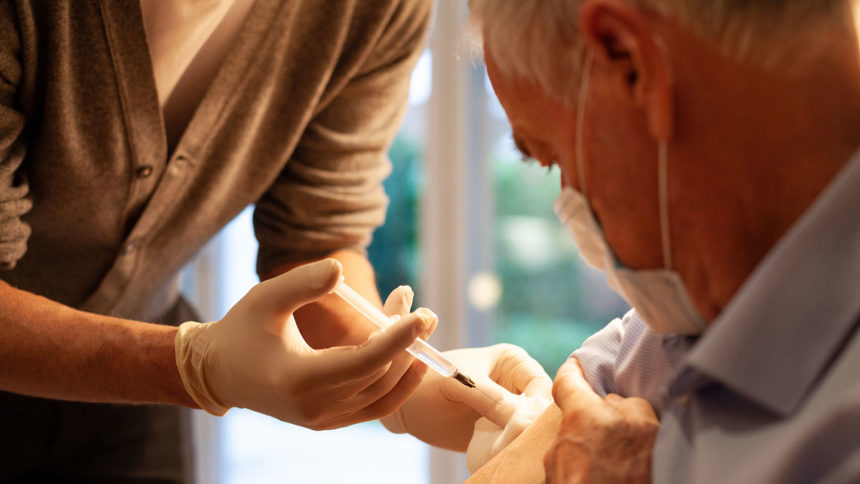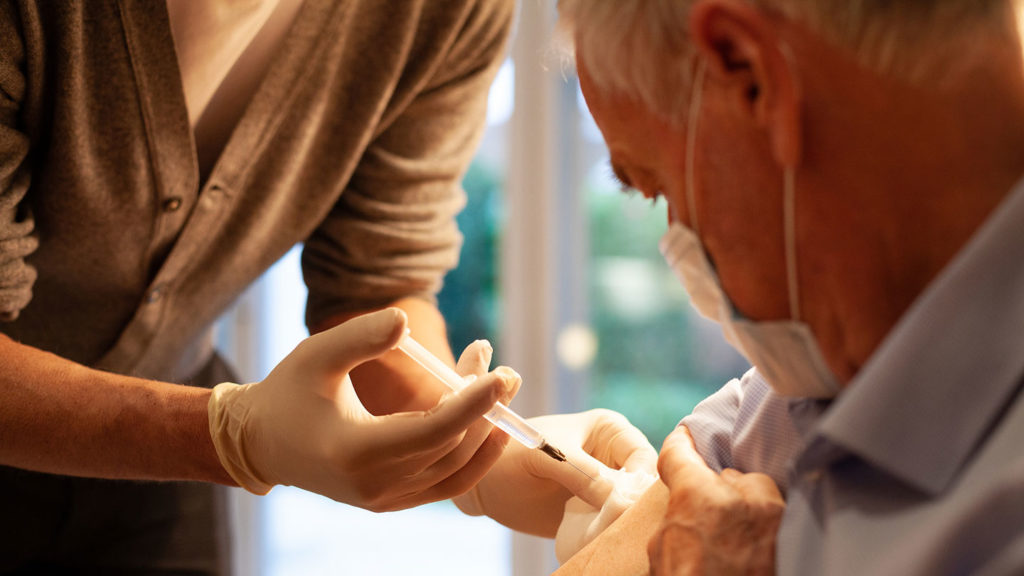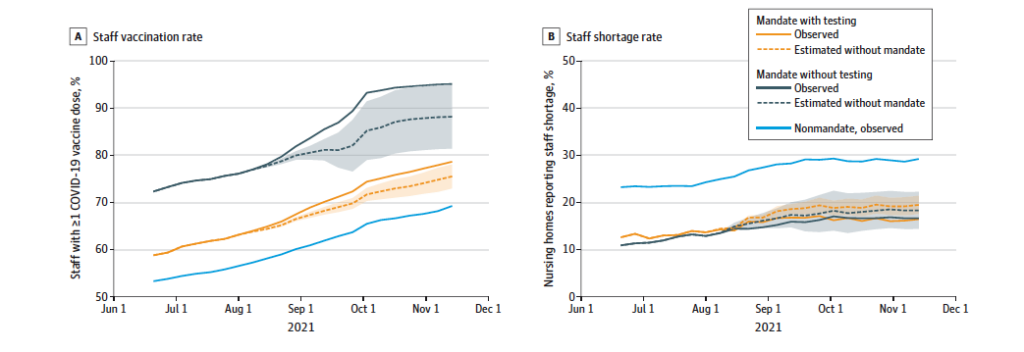

With the prospect of new strains of the COVID-19 virus looming, researchers are making a case for states to impose vaccination booster shot mandates on nursing home employees.
Mandating healthcare workers to become vaccinated was successful in 2021, and that produced no corresponding worsening of staff shortages, pointed out academic researchers writing in JAMA Health Forum on Friday.
Barely more than half of nursing home workers currently have received any kind of booster shot, they said, drawing parallels to last summer, when fewer than 60% had received any vaccination shots at all. The number of vaccinated nursing home workers is now just below 90%.
States mandating the worker vaccinations that did not allow the option of more frequent testing instead were much more successful, investigators found.
“These results lend support to the recently upheld federal mandate and should inform ongoing discussion about whether to mandate boosters of additional doses as we head toward fall and new COVID waves,” said Brian McGarry, PhD, assistant professor in the Division of Geriatrics and Aging at the University of Rochester, and the study’s lead author.
“We were surprised by the lack of an effect on the staff shortage rate,” he added in comments to McKnight’s. “There were obviously concerns that the mandates could have had catastrophic effects on staffing levels, but we generally find reported staff shortages were stable, or even a little lower, following the mandate announcement.
“Generally, I think our results suggest that when push comes to shove, staff typically elect to get vaccinated rather than lose their job,” McGarry said.

Some states are already wrestling with the idea of mandating boosters.
New York, for example, first moved to mandate them but tempered that goal over concerns of potential staff losses. Massachusetts, on the other hand, adopted a booster mandate and currently enjoys one of the highest rates of boosted staff.
Friday’s release showed that researchers studied 38 states for the five-month period ending Nov. 14, 2021. Twelve of the states had a vaccine mandate for nursing home employees, four of them with no test-out option.
Ten weeks or more after a mandate’s announcement, states with no test-out choice saw conversion rates jump 6.9 percentage points. Those with a test-out option rose 3.1 points.
“State-level COVID vaccine mandates were an effective policy mechanism for improving vaccination rates among staff, particularly in more conservative counties where baseline vaccination rates were lower,” explained researcher Betsy White, PhD, APRN, an assistant professor in Brown University’s Department of Health Services, Policy & Practice.
She called vaccines “the biggest tools in the toolbox” for protecting nursing home staff and residents against COVID-19. She, McGarry and other research team members have produced many studies of COVID nursing home data during the pandemic. Nursing homes early on were identified as the single most likely setting for COVID-19 infections and deaths.
“Our findings suggest that if states took ownership of mandating booster doses — which to date only a small number have — that could be an effective policy tool to ensure broader up-to-date vaccination coverage among staff, which protests both staff and residents,” White told McKnight’s.
She noted that one of the advantages of having states mandate vaccinations instead of individual employers is “they take some of the burden of ‘being the bad guy’ off employers.” They also reduce alternative employment options for unvaccinated staff who may consider leaving to take a job in a different facility,” she added.
She said that health officials need to consider comprehensive requirements for booster doses.
“Our findings give state health departments and policy makers data to inform these decisions around current and future vaccination policies,” White said. “Vaccine-induced immunity wanes over time, particularly in the context of omicron and new variants, and we know that booster doses are needed to remain protected against the virus. Yet barely more than half of staff nationally have received a first booster dose, let alone a second, putting both themselves and residents at risk.”
The nursing home worker booster rate was 54.5%, according to the latest posting of Centers for Disease Control and Prevention data, which reflected provider-submitted data.
Nursing facility staff vaccination rates increased nationally by 25 percentage points, from 63% to 88%, between August 2021 and March 2022. The U.S. Supreme Court upheld CMS’s federal mandate that healthcare workers become vaccinated in January during that time span.




